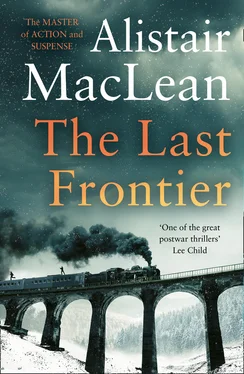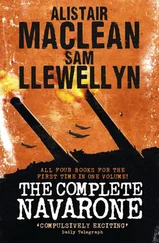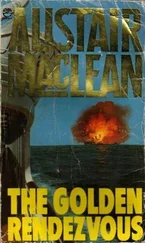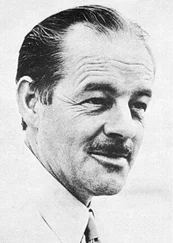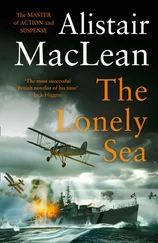‘Our governments?’
‘Your governments,’ Jansci nodded. ‘And, of course, the national press that always conditions the thinking of a people. But primarily the governments.’
‘We in the west have bad governments, often very bad governments,’ Reynolds said slowly. ‘They stumble, they miscalculate, they make foolish decisions, they even have their quota of opportunists, careerists and plain downright power-seekers. But all these things are only because they are human. They mean well, they try hard for the good and not even a child fears them.’ He looked speculatively at the older man. ‘You yourself said recently that the Russian leaders have sent literally millions in the past few years to imprisonment and slavery and death. If, as you say, the peoples are the same, why are the governments so utterly different? Communism is the only answer.’
Jansci shook his head. ‘Communism is gone, and gone for ever. To-day it remains only as a myth, an empty lip-service catchword in the name of which the cynical, ruthless realists of the Kremlin find sufficient excuse and justification for whatever barbarities their policies demand. A few of the old guard still in power may cherish the dream of world communism, but just a few: only a global war could now achieve their aims, and these same hard-headed realists in the Kremlin can see no point or sense or future in pursuing a policy that carries with it the seed of their own destruction. They are essentially businessmen, Mr Reynolds, and letting off a time-bomb under your own factory is no way to run a business.’
‘Their barbarities, their enslavements and their massacres don’t stem from world conquest?’ The fractional lift of Reynolds’ eyebrows was its own sceptical comment. ‘You tell me that?’
‘I do.’
‘Then from what in the world –?’
‘From fear, Mr Reynolds,’ Jansci interrupted. ‘From an almost terror-stricken fear that has no parallel among governments of modern times.
‘They are afraid because the ground lost in leadership is almost irrecoverable: Malenkov’s concessions of 1953, Kruschev’s famous de-Stalinization speech of 1956 and his forced decentralization of all industry were contrary to all the cherished ideas of Communist infallibility and centralized control, but they had to be done, in the interest of efficiency and production – and the people have smelled Freedom. And they are afraid because their Secret Police has slipped and slipped badly: Beria is dead, the NKVD in Russia are not nearly so feared as the AVO in this country, so the belief in the power of authority, of the inevitability of punishment, has slipped also.
‘These fears are of their own people. But these fears are nothing compared to their fears of the outside world. Just before he died, Stalin said, “What will happen without me? You are blind, as young kittens are blind, and Russia will be destroyed because you do not know how to recognize her enemies”. Even Stalin couldn’t have known how true his words would prove to be. They cannot recognize enemies, and they can only be safe, only feel safe, if all the peoples of the outside world are regarded as enemies. Especially the west. They fear the west and, from their own point of view, they fear with every reason.
‘They are afraid of a western world that, they think, is unfriendly and hostile and just waiting its chance. How terrified would you be, Mr Reynolds if you were ringed, as Russia is ringed, with nuclear bomb bases in England and Europe and North Africa and the Middle East and Japan? How much more terrified would you be if, every time the world tensions increase, fleets of foreign bombers appear mysteriously on the far edge of your long-distance radar screens, if you know, beyond any reasonable doubt, that whenever such tensions arise there are, at any given moment of the day or night anywhere between 500 and 1,000 bombers of the American Strategic Air Command each with its hydrogen bomb, cruising high in the stratosphere, just waiting the signal to converge on Russia and destroy it. You have to have an awful lot of missiles, Mr Reynolds, and an almost supernatural confidence in them to forget those thousand hydrogen bombers already airborne – and it only requires five per cent of them to get through, as they inevitably would. Or how would you, in Britain, feel if Russia were pouring arms into Southern Ireland, or the Americans if a Russian aircraft carrier fleet armed with hydrogen bombs cruised indefinitely in the Gulf of Mexico? Try to imagine all that, Mr Reynolds, and you can perhaps begin to imagine – only begin, for the imagination can be only a shadow of the reality – how the Russians feel.
‘Nor does their fear stop there. They are afraid of people who try to interpret everything in the limited light of their own particular culture, who believe that all people, the world over, are basically the same. A common assumption, and a stupid and dangerous one. The cleavage between western and Slavonic minds and ways of thinking, the differences between their culture patterns are immense, and alas, unrealized.
‘Finally, but perhaps above all, they are afraid of the penetration of western ideas into their own country. And that is why the satellite countries are so invaluable to them as a cordon sanitaire , an insulation against dangerous capitalist influences. And that’s why revolt in one of their satellites, as in this country two years last October, brings out all that is worst in the Russian leaders. They reacted with such incredible violence because they saw in this Budapest rising the culmination, the fulfilment at one and the same time of their three nightmare fears – that their entire satellite empire might go up in smoke and the cordon sanitaire vanish for ever, that even a degree of success could have touched off a similar revolt in Russia and, most terrible of all, that a large-scale conflagration from the Baltic to the Black Sea would have given the Americans all the excuse or reason they ever needed to give the green light to the Strategic Air Command and the carriers of the Sixth Fleet. I know, you know, that idea’s fantastic, but we are not dealing with facts, only with what the Russian leaders believe to be facts.’
Jansci drained his glass and looked quizzically at Reynolds. ‘You begin to see now, I hope, why I was neither advocate of nor participant in the October rising. You begin to see, perhaps, why the revolt just had to be crushed, and the bigger and more serious the revolt the more terrible would have to be the repression, to preserve the cordon , to discourage other satellites or any of their own people who might be having similar ideas. You begin to see the hopelessness – the fore-doomed hopelessness – of it, the disastrously ill-judged futility of it all. The only effect it had was to strengthen Russia’s position among the other satellites, kill and maim countless thousands of Hungarians, destroy and damage over 20,000 houses, bring inflation, a serious shortage of food and an almost mortal blow to the country’s economy. It should never have happened. Only, as I say, the anger of despair is always blind: noble anger can be a magnificent thing, but annihilation has its – ah – drawbacks.’
Reynolds said nothing: for the moment he could think of nothing to say. A long silence fell on the room, long but not cold any more: the only sound was the scuffling of Reynolds’ shoes as he tied his laces – he had been dressing as Jansci talked. Finally Jansci rose, switched out the light, drew back the curtain of the solitary window, peered out, then switched on the light again. It meant nothing, Reynolds could see, it was purely an automatic gesture, the routine precaution of a man who had lived as long as he had by never neglecting the slightest precaution. Reynolds replaced his papers in his wallet and the gun in its shoulder holster.
Читать дальше
